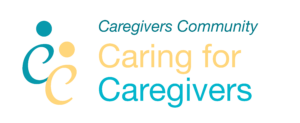**Edited by
Baha and Margaret Habashy
The Challenge
How do you train to be a caregiver?
Embarking on your caregiving roles often means learning on the go. From medication management and equipment handling with no formal training, most caregivers tackle medical tasks with nothing more than on-the-job training. This hands-on learning highlights the crucial need for proper training support and education to ease the stress of caregiving responsibilities.
Meet Arny
Arny prides himself on being very good at what he does. His MBA along with a natural fix it mentality propelled him into a fast track of corporate success.
Suddenly, the bustling businessman turned unexpected caregiver for his bedridden wife battling kidney failure. With no prior formal training, Arny finds himself plunged into the world of caregiving, managing complex medical tasks like medication administration and handling equipment on-the-fly.
Arny’s days transform into a balancing act between business calls and caregiving duties. Juggling meetings and medical responsibilities, he faces the on-the-job learning curve with determination. The lack of formal training becomes a poignant challenge as Arny grapples with the stress of ensuring his wife receives the best care.
In the midst of this whirlwind, Arny discovers the vital need for proper training and support. Each day brings new lessons, from understanding medication schedules to navigating the intricacies of medical equipment. Arny’s journey underscores the importance of accessible education for caregivers, as he strives to provide both professional excellence in his business life and compassionate care for his ailing wife. In the tapestry of Arny’s life, the threads of caregiving and business are intricately woven, illustrating the resilience required when love meets the demanding reality of healthcare at home.
BIBLICAL INSIGHTS
Philippians 4:6-7: “Do not be anxious about anything, but in every situation, by prayer and petition, with thanksgiving, present your requests to God. And the peace of God, which transcends all understanding, will guard your hearts and your minds in Christ Jesus.”
This verse encourages caregivers to find solace in prayer, offering their concerns and anxieties to God. Trusting in divine peace, caregivers can navigate the challenges with a guarded heart and mind.
Isaiah 40:31: “But those who hope in the Lord will renew their strength. They will soar on wings like eagles; they will run and not grow weary, they will walk and not be faint.”
Caregivers facing exhaustion can find encouragement in this verse. By placing their hope in the Lord, they can find renewed strength and endurance to navigate the demanding responsibilities.
Matthew 11:28-30: “Come to me, all you who are weary and burdened, and I will give you rest. Take my yoke upon you and learn from me, for I am gentle and humble in heart, and you will find rest for your souls. For my yoke is easy and my burden is light.”
This verse assures caregivers that in times of weariness, they can turn to Jesus for rest and relief. It emphasizes the idea that the burden can be shared, offering comfort to those feeling overwhelmed.
Psalm 46:1: “God is our refuge and strength, an ever-present help in trouble.”
For caregivers facing the challenges of caregiving, this verse reassures them that God is a constant refuge and source of strength. It underscores the idea that divine help is ever-present in times of trouble.
THOUGHTS AND TIPS
- Prioritize Self-Care: Example: Schedule short breaks for yourself during the day to recharge. Use this time to take a walk, practice deep breathing, or engage in a hobby.
- Explore Technology Tools: Example: Use healthcare apps to track medication schedules, set reminders, and monitor vital signs. Technology can streamline caregiving tasks and reduce the risk of errors.
- Seek Support Groups: Example: Join an online caregiver support group to connect with others facing similar challenges. Share experiences, seek advice, and provide mutual support.
- Create a Care Plan: Example: Develop a daily care schedule outlining medication times, meals, and other tasks. This plan helps maintain consistency and reduces stress.
- Establish Clear Communication: Example: Maintain an open dialogue with healthcare professionals. Prepare a list of questions before appointments to ensure all concerns are addressed.
- Utilize Respite Care: Example: Arrange for a trusted friend or family member to step in for a few hours, allowing you to take a break and tend to personal needs.
- Organize Medical Information: Example: Create a comprehensive folder with medical records, a list of medications, and emergency contacts. Having this information readily available can be crucial in emergencies.
- Educate Yourself: Example: Attend caregiver workshops or online courses to enhance your understanding of your loved one’s condition and the healthcare system.
- Stay Informed about Community Resources: Example: Connect with local organizations that offer services like meal delivery, transportation, or in-home assistance. These resources can lighten your caregiving load.
- Delegate Responsibilities: Example: Share caregiving responsibilities with family members. Assign specific tasks to each person based on their strengths and availability.
- Stay Organized with Technology: Example: Use smartphone apps to set reminders for medication, appointments, and important tasks. This ensures you stay on top of caregiving responsibilities.
- Set Realistic Expectations: Example: Understand and accept that some days may be more challenging than others. Adjust your expectations and celebrate small victories.
- Explore Financial Assistance: Example: Research available financial assistance programs for caregivers. Many organizations offer grants or support to alleviate financial burdens.
- Establish Legal Documents: Example: Consult with an attorney to establish power of attorney and advance directives. These legal documents ensure you have the authority to make healthcare decisions.
- Encourage Independence: Example: Adapt the home environment to promote independence for your loved one. Consider installing grab bars or using assistive devices to make daily tasks easier.
- Celebrate Small Wins: Example: Acknowledge and celebrate small achievements, whether it’s a good medical report, a positive moment, or successfully managing a challenging situation.
- Establish a Support Network: Example: Keep friends and family members informed about your caregiving journey. Share updates, express your needs, and welcome their support.
- Plan for Emergencies: Example: Develop an emergency plan that includes contact information for healthcare providers, nearby hospitals, and a list of medications. Be prepared for unexpected situations.
- Maintain Your Identity: Example: Make time for activities you enjoy, whether it’s reading, listening to music, or pursuing a hobby. Maintaining your identity outside of caregiving is essential for your well-being.
At our Community Forum you post your prayer requests, gain spiritual guidance, seek emotional support, and get answers to your caregiving questions. Moderated by qualified Christians, pastors, and healthcare professionals, it is our gift to serve you.
** Note: This blog content was developed with help from ChatGPT 3.5. The story, names and images are for illustration only.






Leave a Reply
Want to join the discussion?Feel free to contribute!